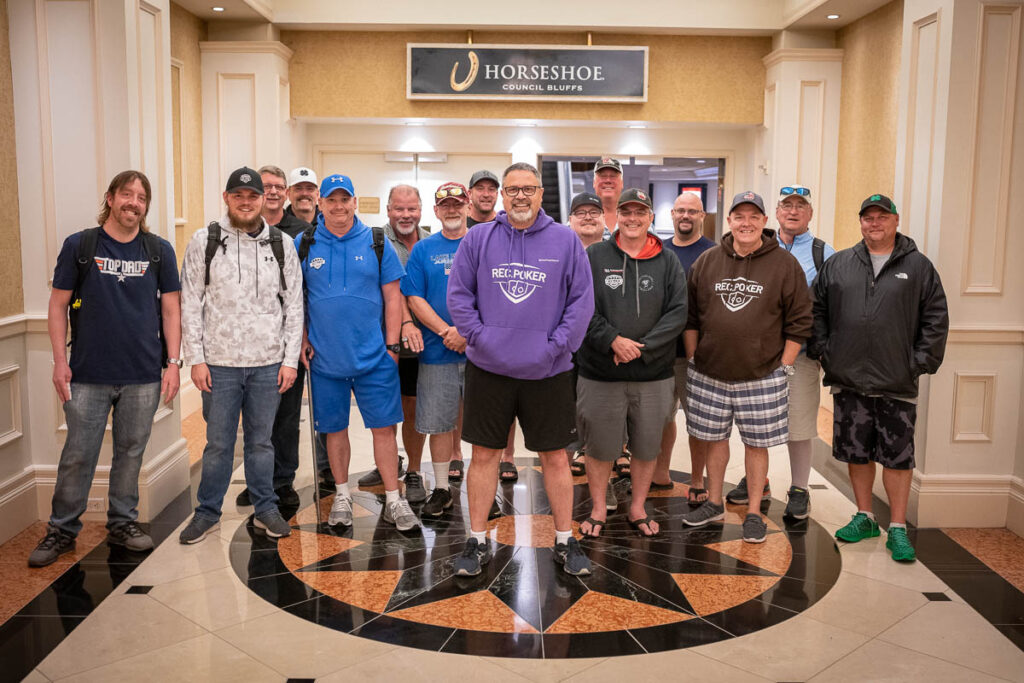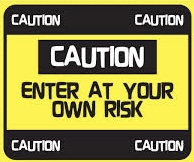Be A Better Fish – Managing the Food Supply

Written by Joseph Wills – https://rec.poker/hockeypoker/ – josephwills@rec.poker
Welcome back! Thank you for following our “Be a Better Fish” series. I hope the Rivers have been kind and you’ve been able to avoid the Poachers.
Let’s quickly recap what was covered in Rivers, Streams, and Poachers:
- Poker is a game of chance. Where there is Variance, there is gambling.
- The River is where dreams can be crushed and unlikely heroes are made.
- There is an abundance of Poker Streams out there. Find one that speaks to you.
- The most expensive training site isn’t necessarily the best training site. Do your research.
- Don’t find yourself being shot at in the barrel of Poker Coaching sites.

From your first home game to high rollers and everything in between, managing the food supply, that is your bankroll, is one of the most important things you’ll do in your career as a Poker player.
There is a concept in Poker called Expected Value (EV) which is defined as “the average return on each dollar invested into a pot.” Let’s truncate this definition to “…average return on each dollar spent.”
If you’re playing at a Casino, or even some home games (no legit home game should), you’ll pay what’s called a “rake” every time you sit at a table. This is the amount that goes to the house (casino, card room or home game) for the privilege of playing there.
In tournaments, this amount is taken off the top before monies are added to the prize pool. For example, a $100 tournament may have a $23 rake to the house, leaving $77 of each entry added to the prize pool (a 23% rake, which by most standards is a pretty high price).
Your job as a Poker player is to maximize profits while navigating each of these ways in which monies are taken/given. For instance, most Poker players tip $1 to the dealer, regardless of how much they win in any given hand. In cases where the pot is chopped between two or more players, giving a tip is considered losing money. Tip your dealers. Period. This is a part of the price to play Poker.
In any given session you will have rake, dealer tips, waiter/waitress tips and even tips to the massage staff if you so choose. It adds up quick if you’re not careful!
When it comes to rake in a cash game or entry fees for tournaments, that will depend on what you are not only comfortable with, but what makes you the most profit. In my case, cash games are more profitable, but I truly enjoy the challenge tournaments offer and tend to play them more often.
To determine what works best for you, a baseline of data will need to be collected. Poker tracking apps are designed to, well, track your Poker sessions and provide output for analysis. Poker Income, Poker Bankroll Tracker and Poker Analytics 6 are examples of these apps. They will allow you to track everything from venue, type of game, stakes, wins/losses, etc.
Let’s say you play a weekly home game that runs a $20 tournament with 10 runners (players) on a consistent basis. You should track every time you play that tournament, take notes, and track your progress. How many times have you cashed? Are you constantly one of the first few eliminated early? What do you know about the stronger players and how to adapt?
All of this information is critical to improving your game and not just throw your bankroll to other players to pay their bills. Remember, the object of this game is to improve and maximize profits, right?
In terms of profits, it’s common to calculate profit in terms of an hourly rate. Starting a cash session with $200, sitting for three hours and leaving with $230 is a profit of $10/hr. Congrats, you are earning 35% more than U.S. minimum wage.
Here is a simple way to calculate and compare Cash vs Tournaments and which you should play if maximizing profits is your goal.
[Payout (PO) – Buy-n (B)] = Profit (P) / Hours at table (H) = Rate/hour (RH)
PO-B/H=RH or simply P/H=RH
| Tournament | Cash | |
| Buy-in (B) | $200 | $200 |
| Hours at table (H) | 9 hours | 9 hours |
| Projected payout/finish (PO) | $680 (15/240) | $515 |
| Total profit (P) | $480 | $315 |
| Total rate/hour (RH) | $53.13 | $35 (documented avg) |
In both instances, you’re wagering $200 and projected to play 9 hours in the tournament with a $680 payout. Obviously, the stats listed for any tournament will be projected based on your documented statistics in previous tournaments. In cash games, you can determine the session length and use your documented win rate.
I want to reiterate the previous point. Both models are based on your own detailed, tracked history. You’re not just going to say “hey, I’ll play this tournament and finish 15th out of 240 players.” Same with cash games. No one can predict their earnings before any session, unless that number is $0 (you quit when knocked out of the tournament or when your cash buy-in is gone).

To be somewhat accurate, gather statistics for at least 100 hours of play in cash games and 20-25 tournaments. In addition to tracking, it also worth stating that a $60 tournament at a Poker Room with mostly regulars is going to be worlds different than a $240 tournament in another Poker Room or tournament series like WSOP or WPT. Keep in mind the type of player. Same for cash. A $1/3 game will play a lot differently than a $2/5 game. Make sure when comparing cash vs tournament, you’re comparing them on an even playing field.
Based on the two models, tournaments yield a better result, but this is also using cautious optimism. Though the cash game projections aren’t guaranteed, they are more likely to be accurate in the long run.
Last thought. Bankroll should only be used for…? BANKROLL! Nothing else. If this includes tips, so be it, as technically it is for the purposes of playing Poker. Don’t use it for meals, valet or other expenses. Once your bankroll reaches a certain point and you want to reward yourself for all the hard-earned profits, be disciplined and enjoy the riches of your success!
As I mentioned in Poker Superstar having a steady income is so important to bankroll management, for obvious reasons. Regardless of your income or bankroll situation, discipline is of the utmost importance. Allocate a certain monthly amount and stick to that amount. If you run to $0, you don’t play until the bankroll is reloaded at your own predetermined interval.
This may sound like an obvious, simple, easy to follow rule. And it is. However, so many people fall into the trap of trying to “win back their losses” they end up losing more than they can afford to lose. Never, I repeat… NEVER wager more than you can afford to lose.
Stay safe out there, manage your bankroll and catch us next time for the next installment of Be a Better Fish!





Responses